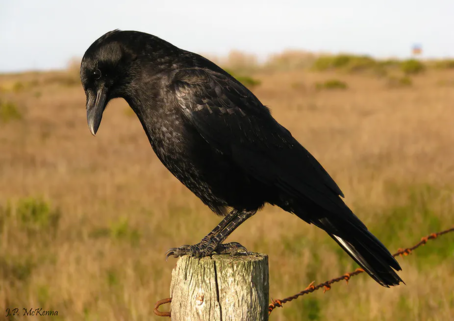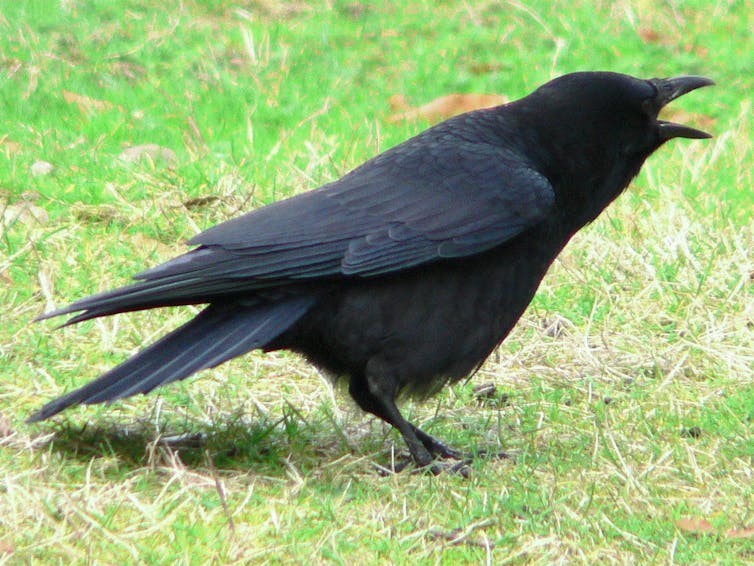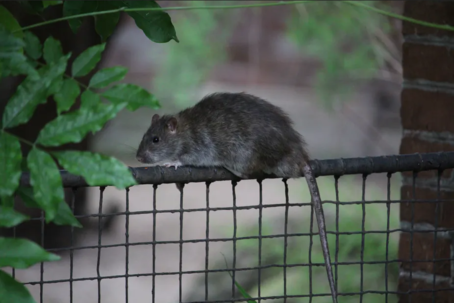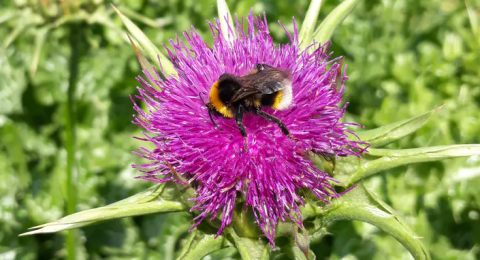
Are crows really that smart?
Crows have remarkable cognitive abilities, but are they really that smart? .
It is becoming increasingly known to scientists, but also to the general public, that corvids (including ravens and crows) are animals with remarkable cognitive abilities.
Many videos on the Internet or TV shows have already shown us crows that can imitate voices, or that know how to solve complex puzzles. But are these birds as intelligent as people say?
The nutcracker puzzle
An example of their intelligence is the often cited case of crows using cars as nutcrackers. California researchers described in the 1990s that American crows would toss their nuts onto the road, wait for a car to crush them and then effortlessly feast on the popped fruit.
However, although taken up numerous times by the media and even by other researchers, this case perfectly illustrates that studying the behavior of animals can unfortunately lead us, often unintentionally, to do anthropomorphism (this is (i.e. attributing to animals abilities or thoughts similar to humans, when their behavior is actually explained by different processes).

To verify that crows really used cars as nutcrackers, and understood the causal relationship between the arrival of the car and the opening of the fruit, researchers from the University of California conducted precise observations of these behaviors. They hypothesized that if the crows understood that cars were opening nuts as they drove by, then the animals should place their nuts on the road and not remove it when a car approached.
However, the researchers noticed that the crows did not throw their nuts onto the road more when a car was coming than when the road was empty. Furthermore, out of the 200 cases studied, researchers have never seen a car crush a nut. This showed that the theory that crows were consciously using cars as nutcrackers was actually false: crows drop their nuts onto hard surfaces to crack them (like roads) and sometimes a car runs over one. This is a happy coincidence for the crow, who however does not make the connection between the car and his meal.
Demonstrated cognitive abilities
However, more recent studies, carried out more rigorously in order to limit anthropomorphism, are restoring the image of the raven's intelligence. For example, it was long thought that only primates knew how to use tools, but recent studies show that several other species are capable of doing so, such as dolphins, octopuses, corvids (including crows) and even recently...pigs!
Corvids (birds of the crow family) remain very sophisticated tool handlers thanks to their ability to choose and even manufacture tools, such as twigs, of the right length and diameter for the task they want to accomplish. For example, they are able to shape hooks by manipulating bendable materials.
Crows also have an impressive memory for faces. Researchers at the University of Washington in Seattle tested this ability by donning a mask to capture and then release American crows. The wild birds then made aggressive cries every time they saw the mask, more than 2 years after capture! Even crows that had not been captured learned to recognize and avoid this threatening figure by observing the behavior of their companions. This study is the first to show that wild (and non-domesticated) animals have the ability to recognize a human by their face and can remember it for several years and transmit this information to their peers. The extent of this recognition is quite remarkable, both from a temporal and social point of view.
Master Raven and self-control
In another experiment, published recently in the journal Animal Cognition, Rachael Miller and her colleagues at the University of Cambridge compared the self-control of New Caledonian crows to that of 3- to 5-year-old children. Self-control is what allows us, for example, to reason with ourselves when we want to watch the last episode of our series, so as not to be tired the next day. It is an aspect of executive control, which allows us to make good decisions and plan for the future. Adults are usually able to use self-control without much difficulty, but children only begin to develop this ability between the ages of 3 and 5.
The experiment tested a specific aspect of self-control: delayed gratification, which occurs when one must choose between a mediocre, but immediate reward and a much better, but not immediately available reward. A typical example of delayed gratification is the marshmallow experiment.
In Miller's experiment, the children and the crows were faced with a turntable that contained two rewards (stickers for the children, treats for the crows): one of the two rewards was more interesting for the subject, i.e. because it was bigger, or because it was of better quality. By rotating, the board first made the least valuable reward attainable by the subjects, who could then grab it. If they grabbed it, the board stopped spinning. However, if they waited for the first reward to pass, then the second, much more interesting, became available to them. The experiment included two conditions: either the two rewards were visible at all times, or they were only visible until the board started rotating. In this second, a more difficult condition, the second reward, the most coveted, was not visible while the first reward passed in front of the subjects, who then had to use their memory capacities in addition to their self-control. In the first condition, both crows and children were able to wait for the best reward. But in the more difficult condition, the children outperformed the crows, because the latter were not able to wait for a reward that they no longer saw.
This experiment is also one of the only ones that attempted to directly compare animals and children in terms of cognitive abilities using the same task for both species. These results are therefore very interesting and give us a better perspective on the intelligence of crows.
However, it is important to keep in mind that animals are often tested for abilities that we, as humans, find important, and in which we excel. Our biased view of the capabilities of other species therefore leads us to think that we are the most intelligent on Earth. But if crows tested us on areas where they are very intelligent, such as visual memory, navigation in 3D space or perception of the Earth's magnetic field, could we compete?
Mélissa Berthet, doctorate in biology specializing in animal behavior, École normale supérieure (ENS) – PSL and Sonya Kaiser, master’s degree in neuroscience (Dual Masters in Brain and Mind Sciences), Sorbonne University
This article has been republished from The Conversation under the Creative Commons license. Read the original article in French.


